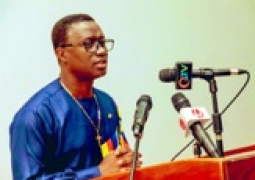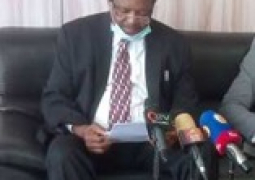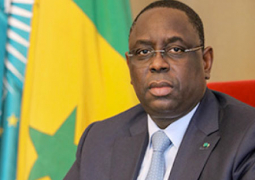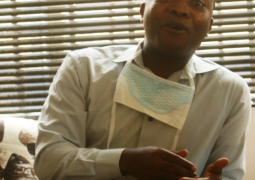“Clandestine or irregular migration locally known within Senegambia (Gambia-Senegal) region as ‘backway’ from West Africa to the Spanish enclave of Canary Islands increases between 2019 and 2020 with number of boats jumping from 2,700 to over 23,000.
Though, numbers increase, it is considered the deadliest migration route to Europe. This has caused a great deal of social and political concern within European Union member States.
The European authorities believe their fight is not against irregular migration or against poor migrants, most of whom are economically desperate to make a better living in Europe. But instead against mafias, criminals, network of smugglers and human traffickers. In their view, Europe is fighting against criminal cartels and gangs who are responsible for the death of over 2000 people in the Atlantic sea en-route to Europe in 2020.
Consequently, European authorities see migration from a security and criminal viewpoint rather than humanitarian and economic problem.
This fieldwork conducted by investigative and research journalists, Alex Rietman and Fabakary B. Ceesay, funded by Journalism Fund, shows the reality of migration from Senegambia to Canary Islands has nothing to do with Europe's criminal network contemplation.
In this part of Africa, linking migration to mafias is a fairy tale and yet it formed the basis of EU migration policy with far-reaching penalties. The multi million Euro question is “will European citizens accept billions of tax payers’ money to be spent on fighting refugees and poor desperate migrants, instead of criminal trafficking and smuggling networks”?
The compilation of this research starts at seashores of The Gambia from well known fishing coast of Tanji, Bakau and Barra, all famous for departure points of migrants to the best and reliably departing points in the Senegalese fishing towns of Mbour and St. Louis (Guith Ndar), where interviews were conducted with hopeful migrants, returned would be migrants, season fishermen, union and community leaders, sea captains, journalists, academic professors and government security officials, all attributed irregular migration as an economic problem and has no direct link with mafia cartels, criminal syndicates or human traffickers as perceived by EU.
The conviction with EU that by pumping millions of Euros to the governments of these countries to curb criminal cartels accuse of ferrying migrants to Europe is seen as waste of money if not channeled through right means to venerable youth that takes the risk.
Most of these youth are local fishermen, boat captains, carpenters, masons (construction workers), tailors, mechanics, footballers and graduates from different social and cultural backgrounds, but due to economic situation, lack of resources and access to tools for their professions stood on one ground that is to risk their lives for Europe than to be destitute in their societies.
This frustrations, coupled with lack of incentive from government and the political atmospheres forced youth to take this precarious journey though, many would prefer not to die in vain if skill centres, technical schools and economic means are directly available to them.
Fishermen and sea captains whose daily livelihood depends on fishing all attributed these massive flow of migrants from Senegambia to the Canary Islands to some European and foreign fishing companies who are giving licence to operate in their waters.
These foreign fishing companies are accused of over fishing (“empty our seas”) making life difficult for them and their families. The only economic means available to them has been hijacked since 2006 when foreign fishing companies started to scramble for fish in their waters.
In their view, foreign fishing boats equipped with modern and better tools caused serious damage to their economy leaving them with no choice, but to look for survival in Europe.
In trying to identify the main organisers of these trips, who are accused as criminals, mafias, still aspiring migrants do not see it from that standpoint. Instead they are seen as easy facilitators to travel to Europe, though they all recognise the deadly nature of it.
The identities of organisers of trips and sub-agents who facilitate means to secure boats and stuff for the trip are members of the societies whom due to economic problems ventures into such business to enable frustrated youth to look for greener pastures in Europe.
No doubt, they all confirmed the dangerous nature of the journey and vowed not to do it if other means were available or if millions that are pumped into to tackle migration directly benefits victims of these circumstances.
Interviews from persons whose views are sought in this research will be featured in the subsequent publications.
Read Other Articles In Headlines





